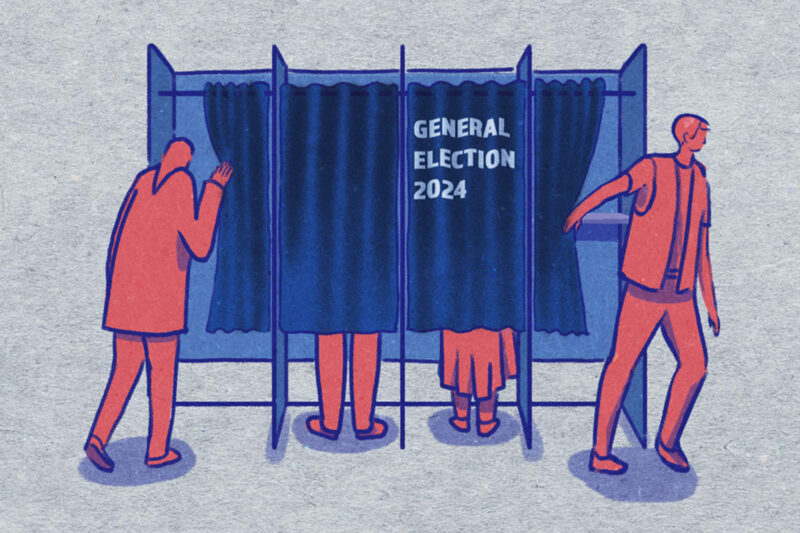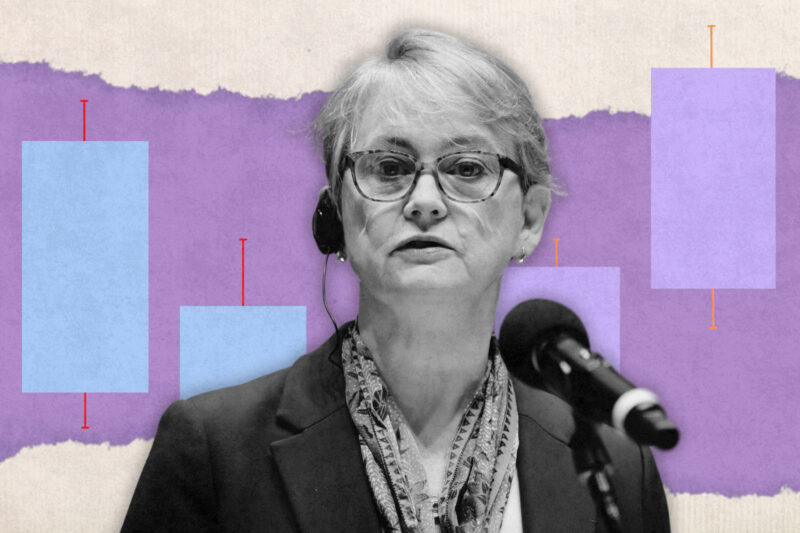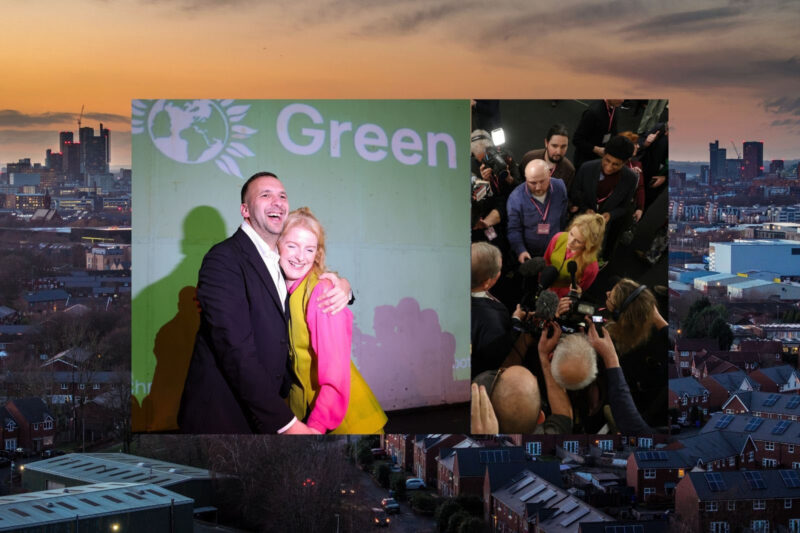Labour needs to pay attention to a new kind of marginal seat
The 2024 general election has opened the door for smaller parties to wield serious influence. Keir Starmer’s government will ignore that at its peril

For decades marginal constituencies have been equated with middle England: suburban areas populated by home-owning, white voters over the age of 50, who vote according to their own economic interests. Under the UK’s first-past-the-post system, such seats have received disproportionate attention from both Labour and Tory strategists who have believed them to hold the key to electoral success.
At the height of New Labour, former Labour cabinet minister Peter Mandelson stated that working-class voters in south Wales and, by extension, other party heartlands had “nowhere else to go”. Under Keir Starmer’s leadership, that attitude has only continued.
Taking working-class votes for granted has had consequences. In the 2019 general election, the Conservatives scooped up long-time Labour supporters who had voted for Brexit, leading to the collapse of the so-called Red Wall in the Midlands and the north of England.
In 2024, Pro-Palestine independent candidates have taken a chunk out of Labour’s support. Labour was aware of anger over its position on Gaza and a perception among UK Muslims that the party had considered their votes all but guaranteed. George Galloway’s victory in the Rochdale by-election and local elections in which Labour lost control of Oldham and Kirklees councils should have been a wake-up call.
Labour, however, made an electoral calculation. It could afford to lose votes of British Muslims because they tend to reside in the party’s safest seats. Instead, the focus would be on winning over disgruntled suburban Tories. That strategy paid dividends. By capitalising on the unpopularity of the Conservatives, Labour won a landslide majority with just 34% of the vote.
The party did not anticipate losing former strongholds to independents, though. The biggest shocker was Jonathan Ashworth, tipped to be a government minister, losing his Leicester South seat to independent Shockat Adam. Labour also lost Blackburn, Dewsbury and Batley, and Birmingham Perry Barr to independents.
The party didn’t just lose votes in those constituencies. It lost loyal members. People who would knock doors for the party, playing a crucial role in getting people to turn up to polls. Muslim members, likely to have large extended families and social networks in tight-knit communities, were a valuable asset in dozens of seats. Their absence compounded the party’s problems, forcing it to rely on activists from elsewhere to staff canvassing operations. Now Labour is in government, it needs to rebuild trust with its base — and fast.
Seat tallies only tell one part of the story. In many areas, the results were incredibly close. In Ilford North Leanne Mohamad, a young British-Palestinian woman, was just 528 votes away from unseating Wes Streeting, now the government’s health minister. Labour’s justice secretary Shabana Mahmood also lost around 18,000 votes compared to 2019 in Birmingham Ladywood, in a race where turnout stood at just 43.7%.
Once-safe seats, from Bethnal Green and Stepney to Bradford West, have become marginal constituencies overnight. In many ways, this shift provides British Muslims with political leverage. The likes of Streeting and Mahmood will be looking over their shoulders, nervous of losing further support.
If anyone is likely to be hurt by further missteps by the party leadership — justifying the collective punishment of Palestinians or singling out the Bangladeshi community in an interview — it will be ministers who now occupy precarious seats.
It’s not just independents that Labour needs to watch out for. At just 57%, Labour and the Tories got their lowest combined share of the vote in more than 100 years. Conversely, smaller parties such as the Greens and Reform UK are picking up support.
In Bristol Central, the Green party’s Carla Denyer beat Thangam Debbonaire — another likely Labour minister — by more than 10,000 votes. The Greens came second in other Bristol constituencies, inner-London seats including Hackney and Lewisham, and cities such as Sheffield and Manchester. If Labour continues to alienate leftwing voters in urban areas, the Greens will keep growing. Labour abandoning its previous £28bn green investment pledge has already been seized upon and any further environmental U-turns could prove costly.
There is also the significant risk posed by Reform. While Nigel Farage’s party was far more detrimental to the Conservatives than Labour in this election, that could change over the next four years. Reform’s tally of parliamentary seats masks its popular support, coming second in numerous constituencies held by both Labour and the Conservatives.
Reform performed strongly in Labour seats such as Blackpool South, Barnsley North and Rotherham, where it came second. In order to neutralise that threat, Labour may tack to the right on issues such as immigration and law and order.
Similar to that of Boris Johnson in 2019, Labour’s coalition of voters encompasses a wide variety of different views and interests — from loyal Black and Asian supporters who feel the party should support safe and legal immigration and push back against the rhetoric of the right, to those who think it should be even tougher on the issue. It will be a challenge to hold them together. To do so, Starmer’s government should look to what unites voters in marginal constituencies, rather than an outdated notion of what constitutes middle England.
While people who backed independent pro-Palestine candidates and Reform appear to be worlds apart, there is often common ground when it comes to class. Independents scored big in areas with high levels of child poverty and deprivation. British Muslims disproportionately reside in the country’s most deprived areas. Coastal towns such as Clacton, Great Yarmouth and Boston and Skegness, where Farage and other Reform candidates won, are among the poorest parts of the country. So too are places such as Blackpool, Barnsley and Rotherham where the party came second.
Politicians can pontificate about the dangers of populism. They can continue to offer scapegoats instead of solutions. Or they can commit to ambitious policies that will transform lives. Doing so will involve investment in health, education and infrastructure. Sticking to Tory tax-and-spend policies and technocratic managerialism will not cut it.
The country has voted for change. Now, it’s time for Labour to deliver. If it does not, voters have shown that they are ready to look elsewhere.
 Newsletter
Newsletter













